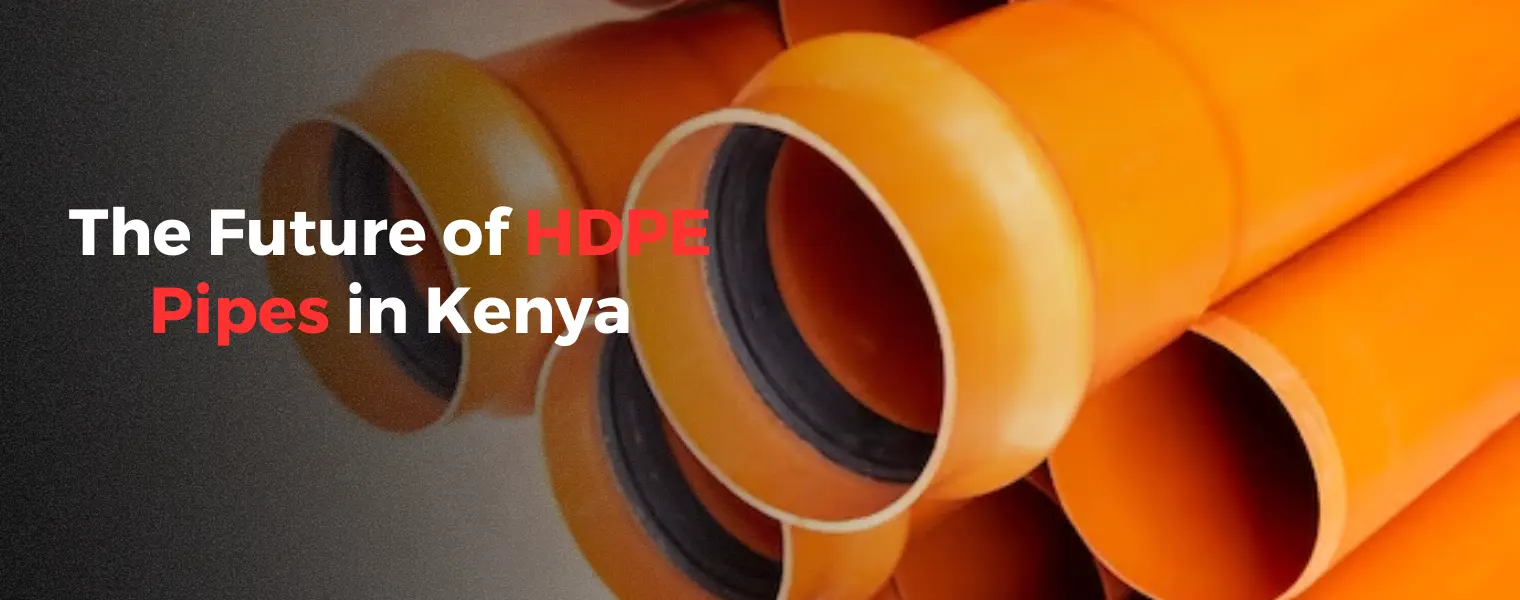
Kenya, a nation of innovation and progress, is at the cusp of a significant transformation in its infrastructure and water supply sectors. The future of Kenya is shaped by sustainable solutions, and High-Density Polyethylene (HDPE) pipes are emerging as key players in this narrative. These versatile pipes are not just conduits for water and utilities; they represent a more sustainable, efficient, and environmentally friendly future for Kenya.
HDPE pipes are renowned for their exceptional durability. They are designed to withstand the harshest environmental conditions, from extreme temperatures to UV radiation, without succumbing to corrosion or degradation. In a country with a growing need for reliable infrastructure, HDPE pipes offer longevity that can span generations.
Sustainability is at the heart of Kenya's vision for the future. HDPE pipes are highly recyclable, aligning with Kenya's commitment to responsible waste management. By recycling old HDPE pipes into new ones, the nation reduces its reliance on virgin materials, mitigates environmental impact, and advances the principles of a circular economy.
HDPE pipe manufacturing requires less energy compared to traditional materials like metal or concrete. This energy efficiency translates into lower greenhouse gas emissions during production, contributing to Kenya's environmental goals and commitment to combat climate change.
The jointing technique for HDPE pipes, heat fusion, creates seamless connections that are highly resistant to leaks. In a country where water conservation is paramount, the reduction of water loss due to leaks is not just practical but a vital step toward sustainability.
Many irrigation systems are vulnerable during the winter months. When the outside temperature falls below freezing, any water inside the system's pipes will freeze and expand, putting enormous strain on the pipe walls. Freezing water can quickly corrode irrigation pipes made of metal or rigid plastics. At sub-zero temperatures, HDPE does not become brittle, and its inherent flexibility allows it to expand to accommodate freezing water. Although it is still strongly advised to drain an irrigation system using HDPE pipes, if any water remains in the system when the temperature drops, the system is less likely to suffer catastrophic damage.
Kenya's commitment to clean and safe water supply is exemplified by HDPE pipes' chemical resistance. These pipes ensure that no harmful chemicals leach into conveyed water, preserving water quality and safety.
While HDPE pipes present numerous benefits, challenges such as initial costs and the need for skilled installation persist. Overcoming these challenges and ensuring a sustainable future require collaboration among government agencies, industry players, and educational institutions.
The future of Kenya is taking shape, and HDPE pipes are central to this transformation. With their durability, recyclability, and environmental advantages, HDPE pipes epitomize the sustainable future that Kenya envisions. By addressing installation challenges, promoting awareness, and fostering collaboration, Kenya is poised to fully harness the potential of HDPE pipes. These pipes are not just building the infrastructure of tomorrow; they are building a greener, more efficient, and more sustainable future for Kenya and its people. Polyfab provides the best HDPE pipes Contact us to know more.